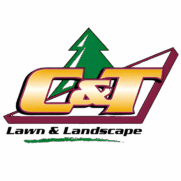Starting a lawn care business in 2025 requires extensive market research, legal compliance, and smart financial planning. You’ll need commercial-grade equipment plus eco-friendly alternatives to attract environmentally conscious clients. Set competitive yet profitable pricing, invest in digital marketing, and implement efficient operational systems. Train your team well and focus on service quality to build a loyal customer base. Our detailed guide covers everything from securing the right insurance to scaling your green industry empire.
Market Research and Identifying Your Lawn Care Niche

Before investing time and money into your lawn care business, you’ll need to conduct thorough market research to identify profitable opportunities in your area. Start by analyzing target demographics—homeowners in affluent neighborhoods often spend more on premium lawn services, while commercial properties might need regular maintenance contracts.
Perform a competitor analysis to understand existing players. What services do they offer? How do they price? Identify gaps in the market for service differentiation—perhaps organic lawn care, drought-resistant landscaping, or smart irrigation systems aren’t being offered yet.
Pay attention to market trends like eco-friendly practices and technological integration. Climate considerations in your region will also dictate specialized services that might be in demand, such as snow removal in winter or drought management in summer.
Legal Requirements: Licensing, Insurance, and Business Structure
When starting your lawn care business, maneuvering the legal environment properly can prevent costly penalties and protect your assets. Begin with business registration—choose between sole proprietorship, LLC, or corporation based on your liability needs and tax objectives.
Secure proper permit requirements from your local government, and check zoning regulations to confirm you can operate in your desired location. You’ll need extensive liability coverage ($1-2 million is standard) to protect against property damage or injuries.
Understand your tax obligations, including quarterly estimated payments and potential sales tax on services. If hiring help, employee classification matters—misclassifying contractors can trigger IRS penalties.
Finally, use professional contract agreements that meet industry standards to define service scope, payment terms, and liability limitations.
Creating a Sustainable Business Plan and Financial Projections
With your legal foundation established, a strong business plan becomes your roadmap to profitability in the lawn care industry. Your plan should outline clear financial forecasting for at least the initial three years, including startup costs, monthly expenses, and projected revenue streams. Incorporate sustainability metrics to track your ecological impact and cost efficiencies.
- Revenue Projections: Calculate income based on service types, seasonal demand, and realistic customer acquisition rates
- Expense Planning: Account for equipment purchases/maintenance, labor costs, fuel, insurance premiums, and marketing budget
- Growth Strategy: Define clear milestones for expanding your service offerings, hiring extra crew, and implementing eco-friendly practices
Remember to revisit your business plan quarterly, adjusting projections based on actual performance data. This living document will guide your decisions as market conditions and your business evolve.
Essential Equipment and Technology for Modern Lawn Care
Starting your lawn care business requires strategic investment in reliable equipment that balances quality with your budget constraints. You’ll need commercial-grade mowers, trimmers, and blowers as foundational tools, while specialized equipment like aerators and dethatchers can be added as your service offerings expand. Modern lawn care operations also benefit from digital solutions—including scheduling software, GPS routing systems, and financial management apps—that streamline operations and provide valuable data insights for business growth.
Core Equipment Investments
The backbone of any successful lawn care business lies in its equipment arsenal. You’ll need to make strategic purchases that balance quality, durability, and investment return. Professional-grade equipment costs more upfront but delivers reliability and performance that cheaper alternatives can’t match.
- Commercial Zero-Turn Mower: The cornerstone of efficiency, reducing mowing time by 50% compared to standard riders while providing professional-grade cuts
- Trimmer and Edger Combo: Essential for detail work and creating crisp property lines that showcase your attention to detail
- Blower with Variable Speed: Necessary for efficient cleanup that completes the polished look clients expect
Implement a strict equipment maintenance schedule from day one—regular oil changes, blade sharpening, and seasonal tune-ups will enhance your equipment lifespan and protect your investment.
Digital Management Tools
Nearly every successful lawn care operation today relies on digital solutions to streamline operations and improve profitability. You’ll need cloud-based software that integrates multiple business functions into one accessible platform.
Invest in extensive systems offering project management capabilities to track job progress and customer relationship features for managing client communications and service history. Look for solutions with strong financial tracking to monitor expenses, revenue, and profitability per client.
Mobile applications are essential for field operations, providing time scheduling functionality for your crews and inventory management to track equipment and supplies. Many platforms now offer team collaboration tools allowing real-time communication between office staff and field technicians.
These digital tools typically cost $20-100 monthly but deliver significant ROI through improved efficiency and reduced administrative overhead.
Eco-Friendly Practices and Sustainable Landscaping Options

Implementing eco-friendly practices in your lawn care business positions you as an environmentally responsible service provider while meeting growing customer demands. You’ll benefit from offering organic lawn alternatives that eliminate harmful chemicals, installing water conservation systems that reduce resource consumption, and investing in carbon-neutral equipment that minimizes your environmental footprint. These sustainable approaches not just attract eco-conscious clients but also reduce your operational costs while contributing to healthier communities and ecosystems.
Organic Lawn Alternatives
Why continue offering traditional lawn care when eco-friendly alternatives can significantly improve your business profile and environmental impact? By incorporating natural lawn solutions into your service menu, you’ll attract environmentally conscious clients while differentiating yourself from competitors. Organic alternatives reduce chemical runoff and promote healthier soil ecosystems that naturally resist pests and disease.
- Replace synthetic fertilizers with eco-friendly fertilizers like compost tea, seaweed extract, and bone meal that nourish soil without harmful chemicals
- Offer microclover or white clover overseeding services that naturally fix nitrogen and reduce water requirements
- Develop packages featuring native plant installations that thrive with minimal maintenance and support local biodiversity
Your clients increasingly demand sustainable options. By positioning yourself as an organic specialist, you’ll tap into this growing market segment while contributing to environmental health.
Water Conservation Systems
As water restrictions become increasingly common across the country, lawn care professionals must master water conservation techniques to stay competitive. Your business can stand out by installing smart irrigation technologies that monitor soil moisture and weather patterns to optimize watering schedules.
Rainwater harvesting systems represent another profitable service offering. Installing rain barrels, cisterns, or underground collection tanks allows clients to capture thousands of gallons annually that would otherwise become runoff. You’ll need to familiarize yourself with local regulations governing rainwater collection.
Consider partnering with certified irrigation specialists to offer water audits that identify inefficiencies in existing systems. Many municipalities offer rebates for water-saving upgrades, creating an attractive selling point for budget-conscious clients. Remember to highlight long-term cost savings when marketing these conservation solutions.
Carbon-Neutral Equipment
The shift to carbon-neutral equipment represents a significant competitive advantage in today’s environmentally conscious market. Your clients increasingly value sustainable practices, making electric mowers and eco-friendly fuels essential investments. Carbon offsetting programs can balance any remaining emissions, positioning your business for green certifications that command premium pricing.
- Change to sustainable machinery gradually—start with electric trimmers and blowers to reduce both emissions and noise pollution while minimizing upfront costs
- Power your equipment with renewable energy by installing solar panels at your base of operations, creating a marketing advantage while reducing long-term expenses
- Implement soil health practices alongside equipment changes to improve ecological diversity, completing your sustainability story and attracting eco-conscious clients
Pricing Strategies That Maximize Profitability
Effective pricing strategies can make or break your lawn care business, regardless of how skilled you are with turf management. Start with competitive analysis to understand market rates, then implement value-based pricing that reflects your expertise and quality rather than simply matching competitors.
Consider cost-plus pricing as your foundation, ensuring all expenses and desired profit margins are covered. Seasonal pricing allows you to adjust rates during peak demand periods, while bundling services (like mowing with fertilization) increases your average ticket size.
Service differentiation justifies premium rates—highlight your eco-friendly practices or specialized equipment. For established operations, dynamic pricing helps optimize revenue based on capacity and demand fluctuations. Remember, strategic pricing supports customer retention; long-term clients are your most profitable asset.
Digital Marketing and Building Your Online Presence
Your lawn care business needs a strong digital footprint to compete in today’s market. Start by creating an optimized website that showcases your services, pricing, and before/after photos while implementing proper SEO techniques to attract local customers. Complement your website with strategic social media accounts where you’ll regularly post lawn transformation photos, seasonal tips, and promotions to engage potential clients and establish your expertise.
Social Media Domination
Why do some lawn care businesses thrive while others struggle to find clients? Often, the difference lies in their social media strategy. In 2025, your lawn care business needs more than just a profile—it requires an extensive approach to digital presence that turns followers into paying customers.
- Platform Selection & Content Strategy: Focus on visual platforms like Instagram and TikTok for before/after transformations, while using Facebook for community building and customer testimonials.
- Audience Engagement & Analytics Tracking: Respond to comments within hours, use polls to understand client needs, and regularly review metrics to refine your approach.
- Visual Storytelling & Brand Consistency: Share seasonal lawn care tips with branded graphics, time-lapse videos of projects, and influencer collaborations with local home improvement experts.
Website Design Essentials
While social media platforms offer opportunities for client engagement, a professional website serves as the backbone of your digital lawn care business. Your site should reflect your branding elements through consistent colors, logos, and fonts that convey professionalism.
Prioritize user experience with intuitive navigation and mobile optimization—most potential clients will view your site on smartphones. Include a portfolio showcase highlighting your best work alongside client testimonials to build trust.
Implement SEO strategies by incorporating lawn care keywords throughout your content management system. Every page should feature a clear call to action, whether scheduling consultations or requesting quotes.
Don’t overlook website aesthetics; clean designs with high-quality images of pristine lawns attract clients. Ultimately, install analytics tracking to monitor visitor behavior and continuously improve your digital presence.
Client Management Systems and Operational Efficiency
As your lawn care business grows beyond a handful of clients, implementing strong management systems becomes essential for maintaining quality service and profitability. Modern lawn care software solutions streamline client communication and project tracking, allowing you to manage service schedules efficiently while reducing administrative overhead.
Growing without system upgrades is like mowing with scissors—inefficient and ultimately unsustainable.
- Digital CRM platforms specifically designed for lawn care businesses help organize customer data, track service history, and automate appointment reminders
- Mobile apps with GPS integration optimize route planning between properties, reducing fuel costs and maximizing the number of yards serviced daily
- Automated invoicing systems accelerate payment collection while providing clients with detailed service records and simplifying your bookkeeping
Investing in these operational tools early pays dividends through reduced paperwork, fewer scheduling conflicts, and improved client retention rates.
Hiring and Training Your Lawn Care Team
Building efficient systems lays the groundwork for expansion, but your business can only grow as far as your team allows. Your recruitment strategies should target candidates with both technical skills and customer service aptitude. Implement structured onboarding processes that immerse new hires in your company culture from day one.
| Training Component | Implementation Strategy |
|---|---|
| Safety Protocols | Hands-on equipment training |
| Skill Development | Certification programs |
| Customer Service | Role-playing scenarios |
| Team Dynamics | Weekly teamwork exercises |
| Performance Evaluation | Monthly feedback sessions |
Develop extensive training modules that standardize operations while recognizing individual strengths. Keep in mind that employee retention hinges on clear growth pathways and recognition programs. Regularly evaluate team performance against established metrics, making adjustments to optimize efficiency. Your investment in proper training directly impacts client satisfaction and fundamentally, your bottom line.
Scaling Your Business: From Solo Operation to Lawn Care Empire
Once you’ve established reliable operations and assembled a competent team, strategic growth becomes your next critical focus. Implementing effective scaling strategies requires balancing expansion with quality control. You’ll face growth challenges like managing multiple crews, maintaining service standards, and handling increased administrative demands.
- Develop tiered staffing solutions including crew leaders, operations managers, and administrative staff to support expansion while maintaining accountability
- Implement customer retention programs with loyalty discounts, referral incentives, and seasonal maintenance packages
- Reinvest 15-20% of profits into equipment upgrades and technology that increases efficiency
Remember that sustainable growth happens incrementally. Many successful lawn care businesses double their size every 2-3 years rather than attempting rapid expansion that compromises service quality. Prioritize systems that can function without your constant oversight.






